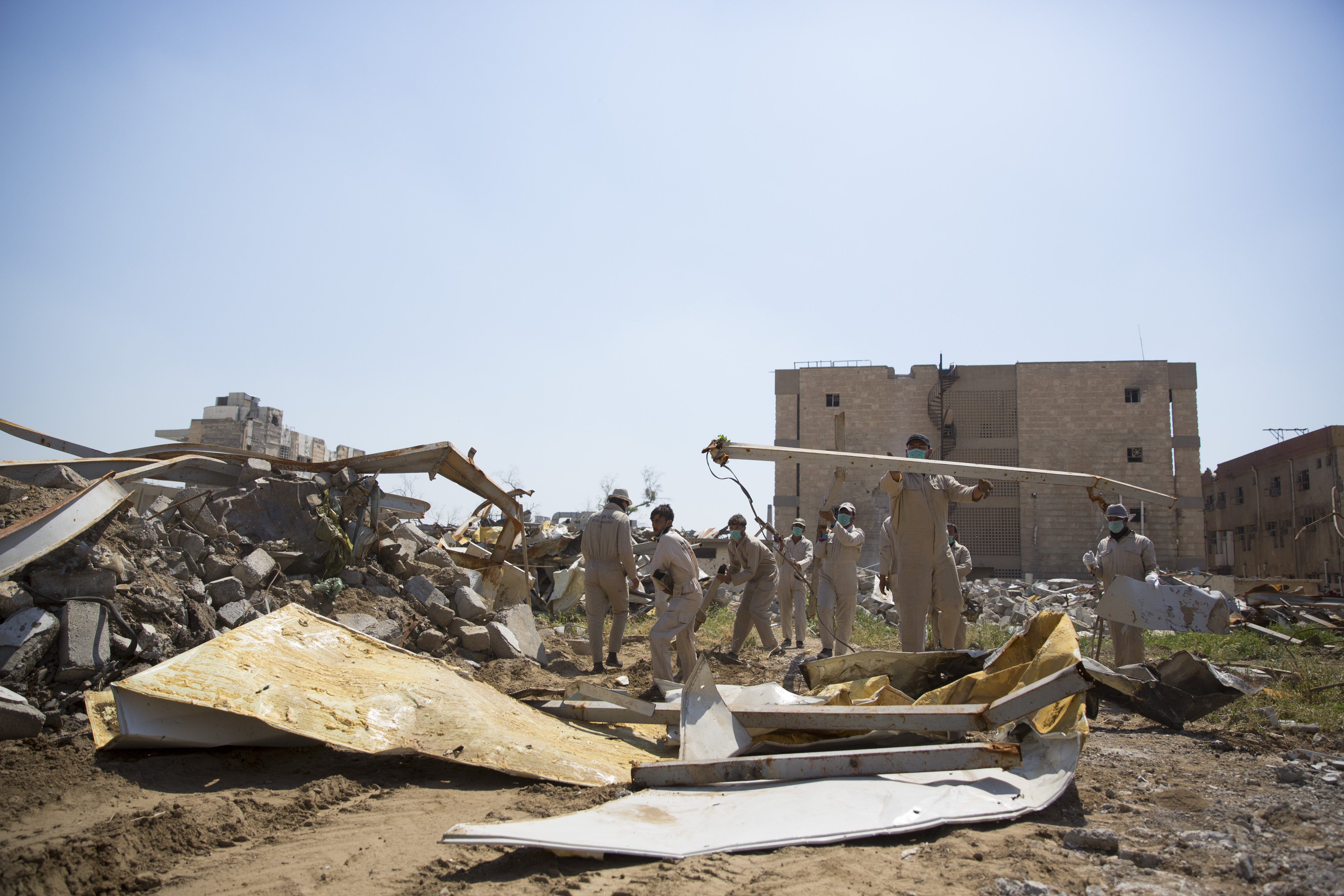Rebuilding the destroyed Al Shifaa Hospital in Mosul
Copyright© Ute Grabowsky/photothek.net
Economic situation Need for deep reforms
The COVID-19 pandemic and falling oil prices caused a slump in Iraq’s economy of 12 per cent in 2020. In 2021, it picked up again (plus 1.5 per cent) and in 2022, the country saw growth of 7.6 per cent thanks to a sharp increase in oil prices. There was no growth in 2023. The economy shrank by 2.9 per cent. The International Monetary Fund (IMF) has estimated growth of 1.4 per cent for 2024.
In the long term, fossil fuels will become less important as sources of energy worldwide. Against this backdrop, Iraq will need to look beyond the oil sector to secure growth and its competitiveness. In order to reduce the dependence on the oil sector, deep structural reforms, a shift in energy policy towards renewable energy and an expansion of the economic activity to new production and service areas are needed.
More jobs required
The private sector in Iraq is lacking investment, labour market-oriented training and upskilling programmes and financing options for companies.
Steps need to be taken to improve the business and investment climate in Iraq so as to revive the economy in the long term and create opportunities for the country’s growing population. The country urgently needs a dynamic private sector that creates future-oriented long-term employment. Almost 40 per cent of Iraqis are younger than 15 and need job prospects.
In 2023, according to the International Labour Organization (ILO), the unemployment rate was 15.5 per cent. Among 15- to 24-year-olds, the rate was as high as 30 per cent. The employment rate of women is among the lowest in the world. Many young people can only get a job in the informal sector, i.e. without any social protection. The preferred employer is the state. Almost 40 per cent of all Iraqis are employed in the public sector. As a large share of budget funds is used to finance wages, the government’s scope for action is very limited. There is a lack of funding for forward-looking investments and infrastructure development.
As at: 07/08/2024
